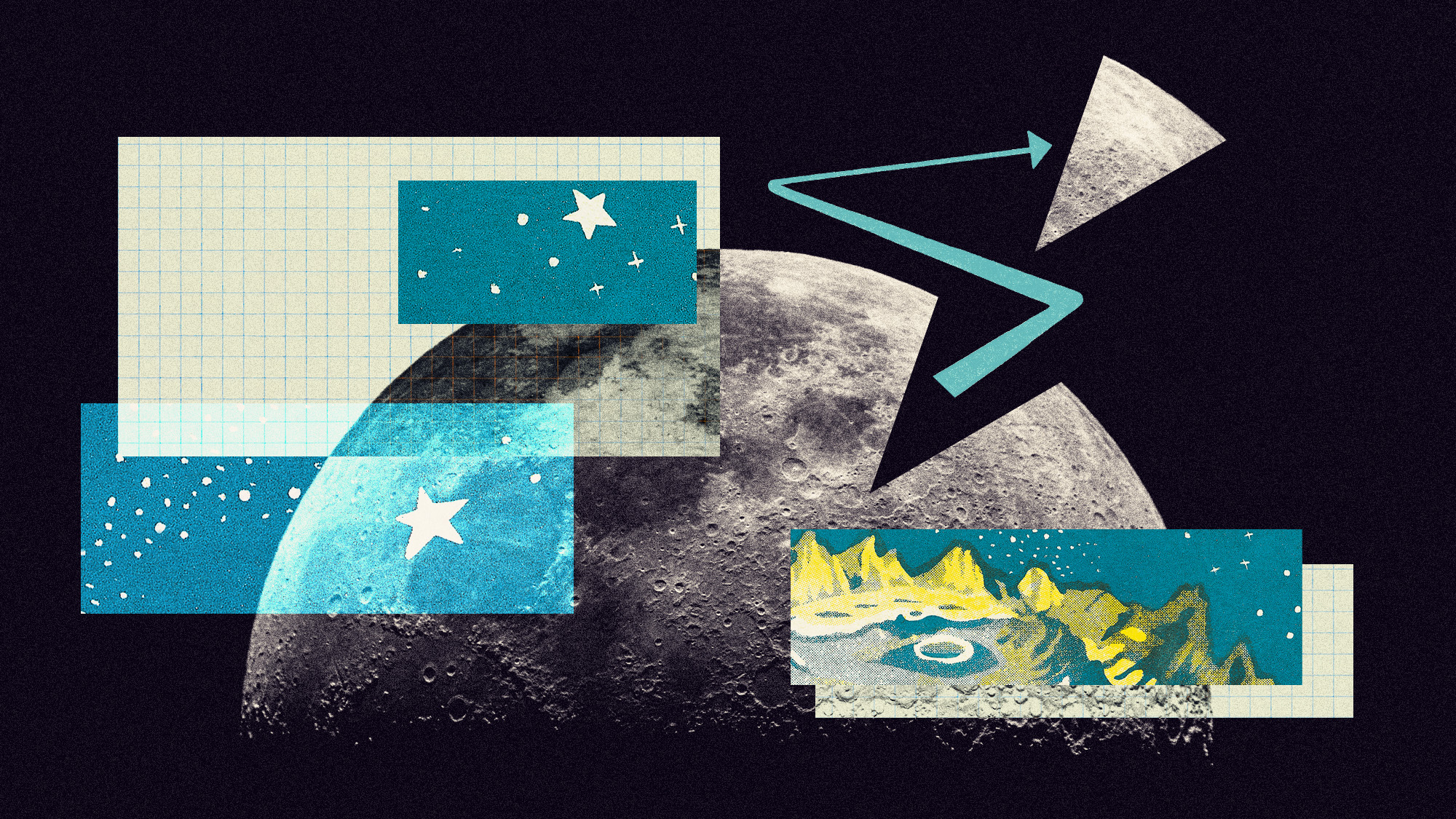Earth's mini-moon was the moon all along
Asteroid 2024 PT5 is a piece of the Earth's satellite after all


A free daily email with the biggest news stories of the day – and the best features from TheWeek.com
You are now subscribed
Your newsletter sign-up was successful
Asteroid 2024 PT5, which almost became a temporary mini-moon to Earth, was recently found to be a broken-off part of the moon itself. This discovery has led scientists to believe there are many more lunar-sourced space rocks waiting to be discovered. Studying these could provide new insight into the moon and its composition.
A moon of Earth's own
While 2024 PT5 never officially joined Earth's orbit, the almost-moon still became a topic of interest and is now understood to very likely be a piece of the actual moon, according to a study published in The Astrophysical Journal Letters. The rock was probably "flung into space by an impact on the lunar surface that occurred sometime within the past tens of thousand years," said The New York Times. "This is a story about the moon as told by asteroid scientists," said Teddy Kareta, a postdoctoral associate at Lowell Observatory in Arizona and the lead author of the study, in a NASA news release. "It's a rare situation where we've gone out to study an asteroid but then strayed into new territory in terms of the questions we can ask of 2024 PT5."
Researchers deduced the object's true nature by observing its movement through space, ruling out that it was human-made space debris. Then they "studied how the sunlight reflected off the small rock" and found it "didn't match that of any known asteroid type" — instead, the "reflected light more closely matched rocks from the moon," said USA Today. While this is convincing evidence that 2024 PT5 was once a piece of the moon, "unless you go and bring a sample back, you cannot tell for sure," said Vishnu Reddy, a professor of planetary science at the University of Arizona, to the Times.
The Week
Escape your echo chamber. Get the facts behind the news, plus analysis from multiple perspectives.

Sign up for The Week's Free Newsletters
From our morning news briefing to a weekly Good News Newsletter, get the best of The Week delivered directly to your inbox.
From our morning news briefing to a weekly Good News Newsletter, get the best of The Week delivered directly to your inbox.
Rock the world
Past lunar missions "have provided precious samples for laboratory study, but space rocks chipped off the moon could add another dimension to our understanding," said Earth.com. Locating moon-sourced asteroids may allow researchers to study samples from deeper in the moon, which would otherwise be difficult to extract. Also, "if a lunar asteroid can be directly linked to a specific impact crater on the moon, studying it could lend insights into cratering processes on the pockmarked lunar surface," said the NASA release.
"Mini-moon" is a misnomer for 2024 PT5 because it approached the Earth from the inside, had its "orbit slightly altered by a very close approach with the Earth-moon system" and then receded "away from us on the 'outside' in an overall horseshoe trajectory," Kareta said to CNN. Thus it never truly became a second moon to the Earth. The asteroid is only the second one ever discovered to have lunar origins; scientists predict there may be many more. "As telescopes become more sensitive to smaller asteroids, more potential moon boulders will be discovered, creating an exciting opportunity not only for scientists studying a rare population of asteroids, but also for scientists studying the moon," said the NASA release.
A free daily email with the biggest news stories of the day – and the best features from TheWeek.com
Devika Rao has worked as a staff writer at The Week since 2022, covering science, the environment, climate and business. She previously worked as a policy associate for a nonprofit organization advocating for environmental action from a business perspective.
-
 Political cartoons for February 15
Political cartoons for February 15Cartoons Sunday's political cartoons include political ventriloquism, Europe in the middle, and more
-
 The broken water companies failing England and Wales
The broken water companies failing England and WalesExplainer With rising bills, deteriorating river health and a lack of investment, regulators face an uphill battle to stabilise the industry
-
 A thrilling foodie city in northern Japan
A thrilling foodie city in northern JapanThe Week Recommends The food scene here is ‘unspoilt’ and ‘fun’
-
 AI surgical tools might be injuring patients
AI surgical tools might be injuring patientsUnder the Radar More than 1,300 AI-assisted medical devices have FDA approval
-
 How roadkill is a surprising boon to scientific research
How roadkill is a surprising boon to scientific researchUnder the radar We can learn from animals without trapping and capturing them
-
 NASA’s lunar rocket is surrounded by safety concerns
NASA’s lunar rocket is surrounded by safety concernsThe Explainer The agency hopes to launch a new mission to the moon in the coming months
-
 Nasa’s new dark matter map
Nasa’s new dark matter mapUnder the Radar High-resolution images may help scientists understand the ‘gravitational scaffolding into which everything else falls and is built into galaxies’
-
 The world’s oldest rock art paints a picture of human migration
The world’s oldest rock art paints a picture of human migrationUnder the Radar The art is believed to be over 67,000 years old
-
 Moon dust has earthly elements thanks to a magnetic bridge
Moon dust has earthly elements thanks to a magnetic bridgeUnder the radar The substances could help supply a lunar base
-
 The ocean is getting more acidic — and harming sharks’ teeth
The ocean is getting more acidic — and harming sharks’ teethUnder the Radar ‘There is a corrosion effect on sharks’ teeth,’ the study’s author said
-
 How Mars influences Earth’s climate
How Mars influences Earth’s climateThe explainer A pull in the right direction
